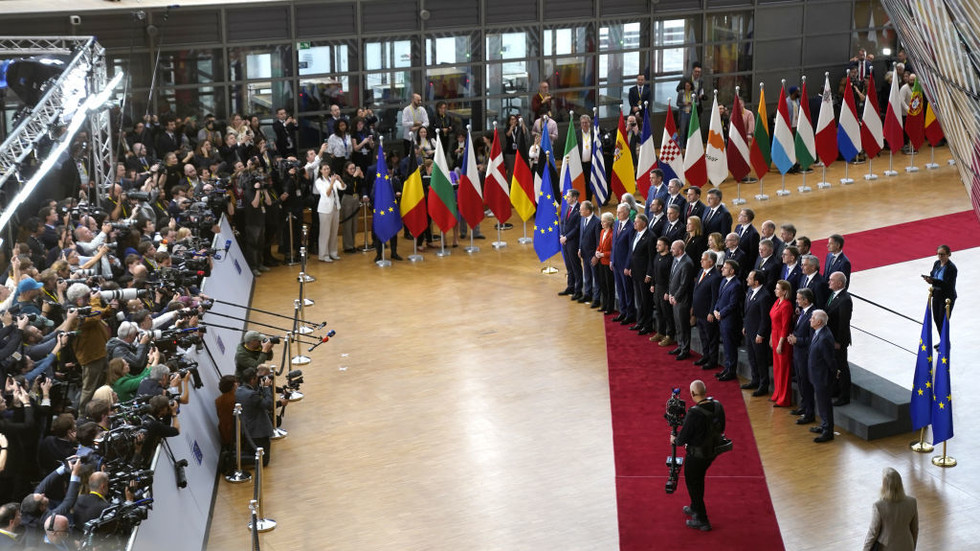Understanding the New Sanctions Imposed by the European Union on Russia
In a significant response to the ongoing geopolitical tensions involving Russia, the European Union (EU) has recently enacted a new set of sanctions aimed at addressing a range of issues, including military aggression, human rights violations, and destabilization efforts in Europe and beyond. This bold move underscores the EU’s commitment to maintaining international order and protecting democratic values in the face of escalating conflicts. As the situation continues to evolve, it is crucial to analyze the implications of these sanctions, their potential effectiveness, and the broader geopolitical landscape.
Context of the Sanctions
The latest round of sanctions comes amid heightened concerns over Russia’s activities in Ukraine, its military posturing in Eastern Europe, and recent reports of cyber-attacks attributed to Russian entities. The EU’s response is part of a broader strategy to exert economic pressure on the Kremlin and signal to the international community its determination to uphold the principles of sovereignty and territorial integrity.
Historically, sanctions have been a common tool employed by international actors to influence state behavior. The EU has previously implemented several rounds of sanctions against Russia since the annexation of Crimea in 2014, targeting various sectors, including finance, energy, and defense. The new measures build upon these efforts, reflecting the EU’s ongoing assessment of the situation and its commitment to a unified foreign policy stance.
Key Features of the New Sanctions
- Targeted Individuals and Entities: The latest sanctions include asset freezes and travel bans on specific individuals associated with the Russian government and military operations. This aims to hold accountable those directly involved in actions undermining international norms.
- Sectoral Restrictions: The EU has expanded its restrictions on key economic sectors, particularly focusing on technology exports that could bolster Russia’s military capabilities. This includes advanced technologies for oil and gas extraction, which are vital to the Russian economy.
- Trade Limitations: New trade limitations have been introduced, particularly concerning goods that could be used for military purposes. This not only impacts Russian industries but also signals a shift in EU trade policy towards greater scrutiny of dual-use technologies.
- Increased Monitoring: The EU has pledged to enhance its monitoring of compliance with these sanctions, utilizing advanced measures to ensure that member states adhere to the imposed restrictions.
Potential Impacts of the Sanctions
The implications of the EU’s new sanctions on Russia are multifaceted, affecting not only the Russian economy but also the broader geopolitical landscape. Here are some potential impacts:
Economic Consequences
Economically, the sanctions are expected to strain Russia’s financial resources. By restricting access to critical technologies and markets, the EU aims to hinder Russia’s ability to modernize its military and sustain its ongoing conflicts. Experts predict that these sanctions could lead to:
- A decline in foreign investments in Russia, as companies weigh the risks of operating in a sanctions-laden environment.
- Increased inflation and currency devaluation, as the Russian economy faces reduced trade opportunities and higher costs for imported goods.
- Potential retaliatory measures from Russia, which could include counter-sanctions targeting EU businesses and economic interests.
Political Ramifications
On the political front, the sanctions serve as a clear message to the Kremlin about the repercussions of its aggressive policies. The EU’s unified stance may inspire other countries, including the United States and allies in Asia, to adopt similar measures. This could lead to:
- A strengthened coalition among Western nations against Russian expansionism, enhancing diplomatic coordination and joint responses to international crises.
- A potential shift in Russian domestic politics, as public dissatisfaction grows due to economic hardship resulting from the sanctions, which could challenge the current regime’s stability.
Broader Geopolitical Implications
The EU’s sanctions are not only a response to specific actions by Russia but also part of a larger narrative regarding global power dynamics. As the world becomes increasingly multipolar, the actions of regional powers like Russia can have ripple effects across continents. Some broader implications include:
- Impact on International Relations: The sanctions could further polarize international relations, leading to a divided global order where countries are forced to choose sides between Western democracies and authoritarian regimes.
- Influence on Other Conflicts: The situation in Ukraine is closely watched by other nations engaged in territorial disputes or conflicts, such as China regarding Taiwan or Turkey in Cyprus. The EU’s actions may embolden or deter similar behaviors in these contexts.
- Global Economic Trends: The sanctions may influence global energy markets, as Russia seeks new partnerships and trade routes, particularly with countries like China and India. This could lead to shifts in energy supply chains and pricing dynamics.
Conclusion
The European Union’s implementation of new sanctions against Russia represents a critical moment in the ongoing struggle for international stability and democratic values. While the immediate effects of these sanctions will unfold over time, their potential to reshape the geopolitical landscape and influence state behavior is significant. As global tensions continue to rise, the EU’s decisive actions may serve as a catalyst for further international cooperation against aggression and a reminder of the importance of upholding international law.
In this complex and evolving situation, it is essential for policymakers, analysts, and citizens alike to remain vigilant and informed about the implications of these sanctions, not only for Europe and Russia but for the entire global community. The path forward will require careful navigation, strategic foresight, and a commitment to diplomacy, as the stakes continue to rise in the face of persistent geopolitical challenges.
See more BBC Express News

